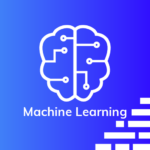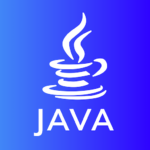
Explore the exciting world of machine learning and data science with our immersive machine learning using Python training program, designed to equip participants with the knowledge and skills to harness the power of Python for building intelligent systems and predictive models.
Why Choose Machine Learning Training with Python at LogicPro InfoSystems?
- Comprehensive Curriculum: Our Machine Learning Training program covers a comprehensive curriculum, encompassing key concepts in machine learning, data preprocessing, model evaluation, and deployment using Python libraries such as Scikit-learn, Numpy,Pandas etc.
- Hands-On Learning: Dive into practical hands-on exercises, projects, and case studies that allow participants to apply machine learning algorithms and techniques to real-world datasets. Gain valuable experience in data analysis, feature engineering, model training, and evaluation.
- Expert Instructors: Learn from industry experts and seasoned data scientists who bring years of practical experience and expertise to the classroom. Our instructors provide personalized guidance and mentorship to help participants succeed in their machine learning journey.
- Project-Based Approach: Develop a portfolio of machine learning projects, including supervised and unsupervised learning tasks, regression and classification problems, natural language processing (NLP) projects, and computer vision applications.
- Career Support: Benefit from our career support services, including resume building, interview preparation, and job placement assistance. We’re committed to helping participants explore career opportunities in data science, machine learning engineering, and related fields.
Key Components of Our Machine Learning Training with Python:
- Introduction to Python for Data Science
- Data Preprocessing and Exploratory Data Analysis (EDA)
- Supervised Learning: Regression and Classification Algorithms
- Unsupervised Learning: Clustering and Dimensionality Reduction Techniques
- Natural Language Processing (NLP) and Text Analytics
- Computer Vision and Image Recognition
- Model Evaluation, Hyperparameter Tuning, and Model Deployment
Who Can Benefit from Machine Learning Training?
- Students and Graduates
- Data Analysts and Business Analysts
- Software Developers and Engineers
- IT Professionals Seeking Career Transition to Data Science
- Entrepreneurs and Tech Enthusiasts
Syllabus of Machine Learning Training
Module 1
- Introduction
- Why do we need Python?
- Program structure
- How to Install Python
- Execution steps
- Executable or script files
- User Interface or IDE
- Creating Your First Python Program
Module 2
- Memory management and Garbage collections
- Object creation and deletion
- Object properties
- Data Types and Operations
- Numbers
- Strings
Module 3
- List
- Tuple
- Dictionary
- Other Core Types
- Statements
Module 4
- Statements and Syntax
- Assignments, Expressions and prints
- If tests and Syntax Rules
- While and For Loops
- Iterations and Comprehensions
Module 5
- File Operations
- Opening a file
- Using Files
- Other File tools
- Functions
- Function definition and call
- Function Scope
- Arguments
- Function Objects
Module 6
- Python Modules
- Packages
- Module Creations and Usage
- Package Creation and Importing
Module 7
- Classes
- Classes and instances
- Classes method calls
- Inheritance and its types
- Static and Class Methods
- Operator Overloading
- Polymorphism
Module 8
- Exception Handling
- Default Exception Handler
- Catching Exceptions
- Raise an exception
- User defined exception
Module 9
- Python Regular Expressions
- Date, time and datetime classes in Python
- Calendar in Python
Module 10
- Python Check If File or Directory Exists
- Python Copy File using shutil.copy()
- Python Rename File and Directory using os.rename()
- Python ZIP & UNZIP file with example
Module 11
- Accessing Internet Data with Python
- Manipulating XML with Python
Module 12
- Introduction of Data Mining
- Stages of the Data Mining Process
- Data Mining Goals
- Information and Knowledge
- Advantages in Data Mining
- Related technologies – Machine Learning, DBMS Statistics Data Mining Techniques
- Role of Data Mining in Various Field like Artificial Intelligence and Internet of Things Future scope of Data Mining
Module 13
- Data cleaning
- Data transformation
- Data reduction
- Data Warehouse and DBMS
- Multidimensional data model
- ETL operations
- Supervised and Unsupervised Technique
Module 14
- Data mining algorithms
- Regression Analysis
- Linear Regression and Logistic Regression
- Classification
- Prediction
- Bayesian Classification Models
- Association rules
- Neural Networks
- Perceptron
- MLP
- SVM
Module 15
- Introduction to python and anaconda
- Conditional Statements
- Looping, Control Statements
- Lists, Tuple ,Dictionaries
- String Manipulation
- Functions
- Installing Packages
- Introduction of Various Tool
- Introduction of Anaconda
Module 16
- Installing library and packages for machine learning and data science
- Matplotlib
- Scipy and Numpy
- Pandas
- IPython toolkit
- scikit-learn
Module 17
- Data Structures in Python
- Intro to Numpy Arrays
- Creating ndarrays
- Indexing
- Data Processing using Arrays
- File Input and Output
- Sorting & Summarizing
- Descriptive Statistics
Module 18
- Data Analysis Using Pandas
- Introduction to Pandas
- Data Type of Pandas
- Creating DataFrame using Pandas
- Importing and Exporting Database
- Working with Complex Data
- Data Mining using Pandas
Module 19
- Modeling using Regression
- Creating a Clustering Model
- Loan Prediction Problem
- Working on Iris Data Set
- Titanic Data
- Boston Housing Data Set
- Predict Stock Prices
Module 20
- Classifying MNIST digits using Logistic Regression
- Intrusion Detection using Decision
- CIFAR Data set
- ImageNet Data Set
- Credit Risk Analytics using SVM in Python
Enroll Today for Machine Learning Training using Python!
Ready to embark on a transformative journey in machine learning and data science? Enroll in our Machine Learning Training program and unleash your potential as a proficient data scientist and machine learning engineer with Python. LogicPro InfoSystems is your trusted partner in building a successful career in data-driven technologies.
Empower your future with Machine Learning Training using Python at LogicPro InfoSystems – Where Innovation Meets Intelligence!








